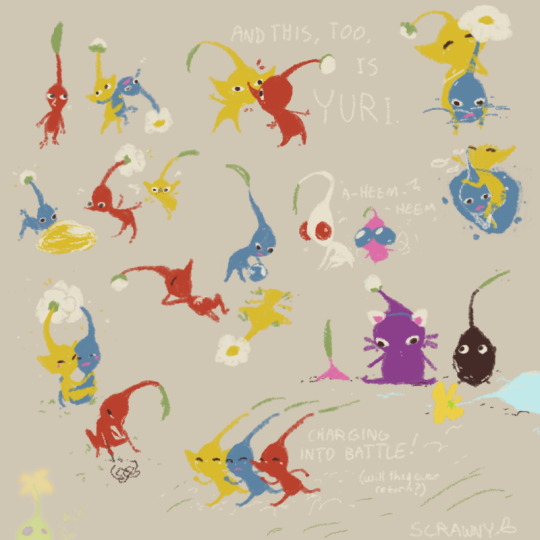#different morphs allowing for different biologically-assigned roles
Explore tagged Tumblr posts
Text

some picked-mins i doodled, alone in a server vc :}
#pikmin#scrawny draws#fan art#red pikmin#yellow pikmin#blue pikmin#purple pikmin#white pikmin#rock pikmin#pink pikmin#ice pikmin#ghost pikmin#plant ant yuri !#obviously the pikmin are genderless and assigning any such sentiments is very silly#but as pikmin take heavy inspiration from ants and all worker ants are (mostly sterile) females i think the goofery lands <3#side tangent but honestly in an anthropomorphised ant society the thing that would serve them the way gender svers us would be *caste*#different morphs allowing for different biologically-assigned roles#that are honestly WAY more distinct than cis perisex human men and women ??? you best believe it#also potentially niche opinion for a fandom i've been in for two whole weeks#but pikmin colours are giving me caste more than they are subspecies#the pikmin cooperate and the onions fuse with ease they balance each other out (ideally) it's so very smooth#there's your tag tangent ok now enjoy the pikffections on display <333#and the icecaine.
650 notes
·
View notes